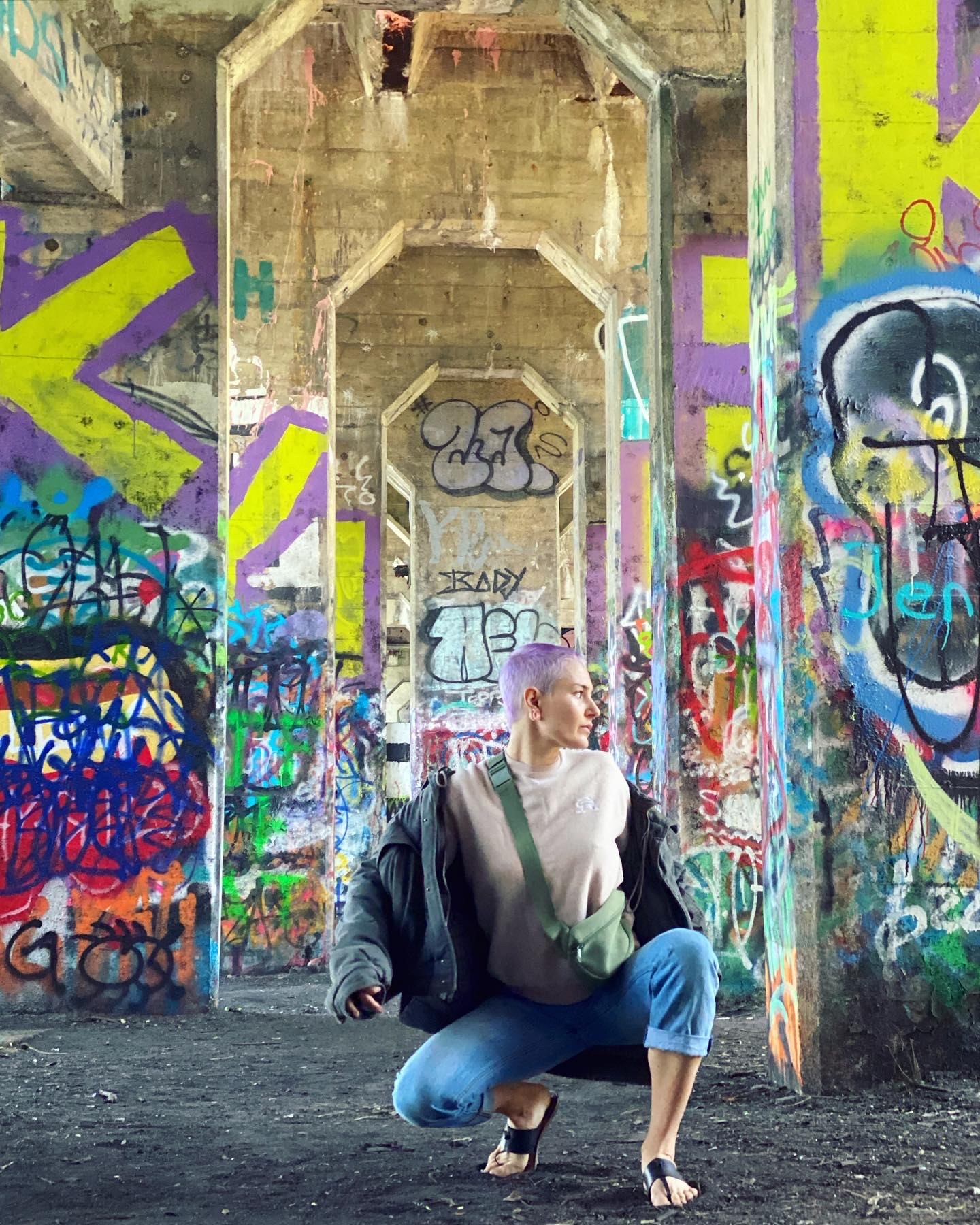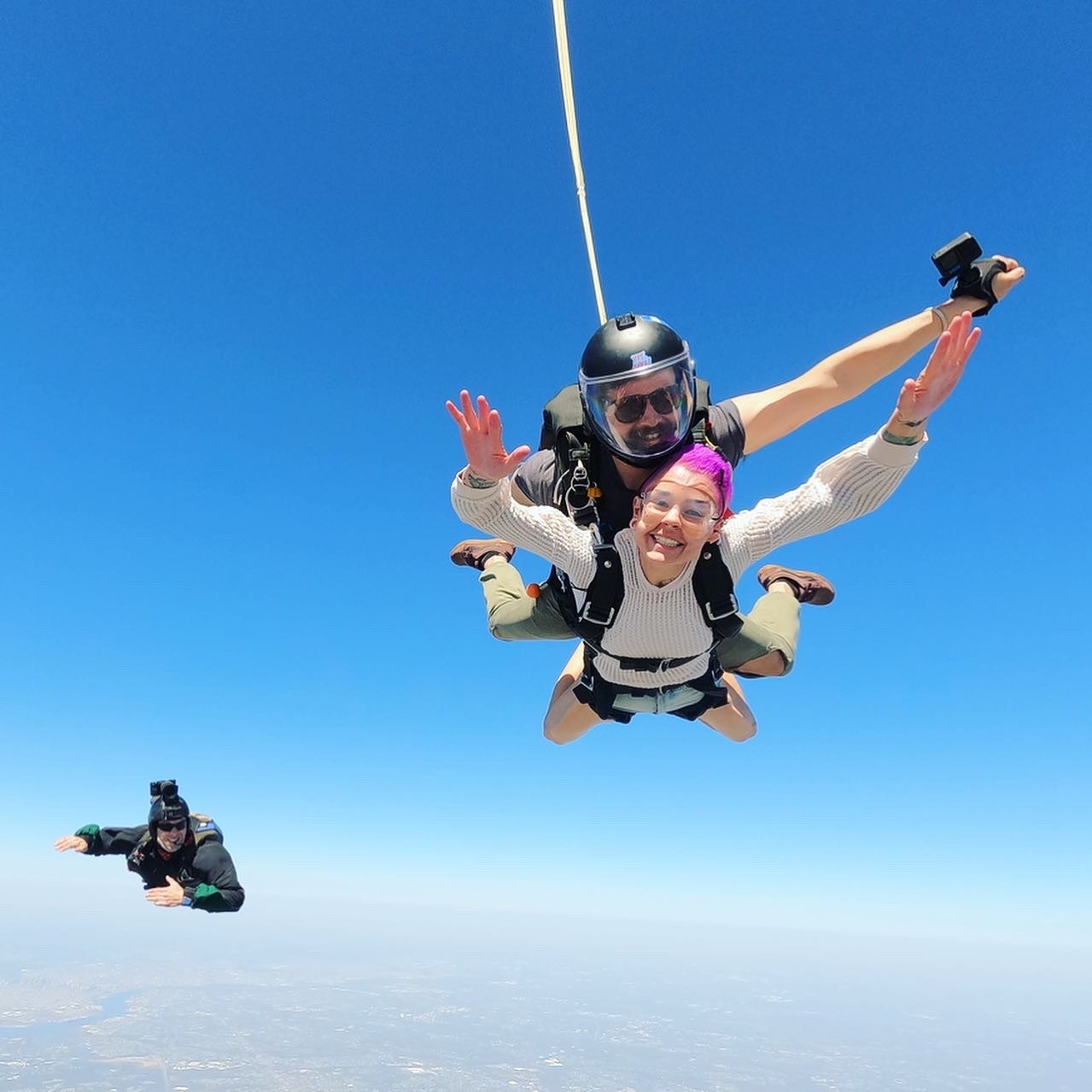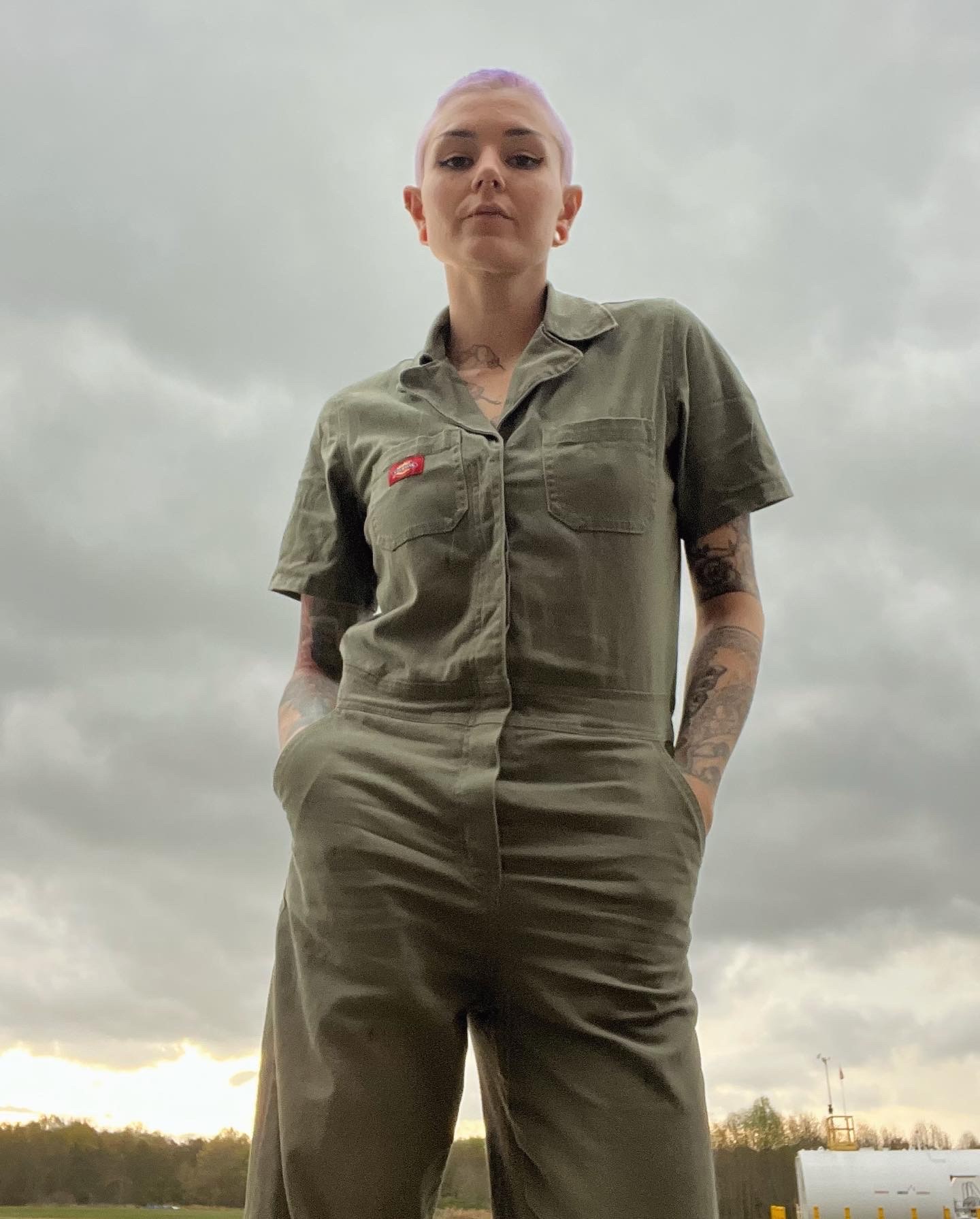Alright – so today we’ve got the honor of introducing you to Autumn Burns. We think you’ll enjoy our conversation, we’ve shared it below.
Autumn, so great to have you with us today. There are so many topics we want to ask you about, but perhaps the one we can start with is burnout. How have you overcome or avoided burnout?
“Strength through adversity. The strongest steel is forged by the hottest fires. It is pounded and struck repeatedly… The fire gives it power and flexibility, and the blows give it strength. Those two things make it able to withstand every battle…”
-Sherrilyn Kenyon
When we first hear of strength, we think of bodybuilders, superheroes, Olympic athletes. And, of course, these are indeed examples of strength, formed through practice, training, and dedication. Anatomically, when building muscle, we must exert ourselves into discomfort so as to cause small rips and tears in our muscles – our bodies’ repair of these tears is what helps us literally “get ripped” and bulk up.
When I was younger, I lived by this “no pain, no gain” mindset. As I’ve gotten older, I’ve realized that putting yourself through the fire is only part of the equation to growth. Missing from this mindset is a very essential step: rest.
If you fail to balance time spent in the fire with time spent cooling down, the metal you forge will be soft, brittle, and weak, destined to collapse. Likewise, if you fail to give your muscles, joints, and mind a chance to rest, the gains you so desire to build will be waylaid by mistakes, injuries, and burnout. A pause to rest and rebuild is when most of the strengthening occurs, and yet it can often take more discipline to rest than it does to stack days in the gym.
Why is this so? I believe much of it can be attributed to our “hustle culture”, preaching that if we aren’t constantly working, improving, or producing, we are wasting our time. My first memory of this concept goes back to when I was a kid, hearing my mom yell at my dad for napping on the couch despite having worked a 12 hour shift that started at 3am. I learned early on that unless I kept myself busy with projects, homework, or extracurriculars, I would be punished for being lazy and unhelpful, whether by my parents, teachers, or my own mind. Idle hands run the devil’s workshop, and my idle mind ran through an endless stream of traumatic memories, intrusive thoughts, and negative self-talk.
As I worked my way through school, I ended up “addicted to the hustle culture”. Looking back, I realize now that I escaped uncomfortable feelings by throwing myself into work or a new hobby. I didn’t have to face my social anxiety around making friends in college if I kept my schedule maxed out with classes, work, and internships. I could distract myself from the pain of my mother’s suicide as long as I was working 80+ hour weeks. The red flags that warned of an unhealthy relationship weren’t “that bad” as long as I was constantly working towards ever-loftier ambitions. What others saw as self-discipline was actually a survival mechanism.
And the thing is, it paid off – at first. I earned my four-year science degree in two years, graduating at the top of my class. I went straight to work in the jungles of Costa Rica, spearheading research and conservation programs. At one point I found myself working full-time, defending my thesis, graduating with a masters degree, getting married, and having my son all within six months. It was a game of momentum – as long as I never stopped moving, I could keep going.
But life has a funny way of giving us what we need, even if we don’t want it. As I got older, the stress started to erupt as chronic pain, first as stomach aches, then migraines, occasionally as something more serious. It was as if my body recognized that I would push it to exhaustion unless something forced me to rest. When quarantine was issued on March 11, 2020, the world came to a halt. In the quiet I began to hear the cries of my inner child, desperate to shed the burden of being a perfectly “good girl” so I might actually live as my authentic self. The more I respected my boundaries and removed myself from unhealthy cycles, the faster my reality dissolved into disillusion until there was no longer space for me to exist as I needed.
Thus began the journey to healing through self-discovery. At first, I felt myself slip into past patterns of productivity, unable to find peace in the stillness. My anxieties about being able to meet the costs of living in San Diego as a newly single co-parent had me searching for ways to monetize nearly every moment of my life. While I could handle the 80 hour workweeks as a young, independent adult, the pressure of being a single mom, going through a divorce, and healing past traumas took more energy than I could muster.
Once the exhaustion took hold, I found myself unable to stop the tears from overflowing at work. My chronic pain and migraines flared up every day, and my mental health slipped into a darkness I had never known before. All the years of pushing my emotions down had built them up to the point that they now overflowed into everyday life, impacting my ability to show up to my responsibilities.
It was clear, I needed to give myself a break, a real break. Not a spa day, not a vacation, but an honest chance to dive within and face myself with honesty and compassion, removed from the environment that demanded so much from me. This led to the most difficult decision I’ve ever made – choosing to become a long-distance parent for a few months while I focused on healing and paying off the debt I incurred during my divorce. I mulled over the decision for an entire year, exhausting any option that would allow me to stay close.
But at the end of the day, I had to face the facts – I couldn’t afford the cost of living at my current capacity, and I was running myself into the ground trying. In the meantime, my ability to be a patient, understanding, empathetic parent was being significantly impacted by the extreme amounts of stress I carried on my shoulders. I wanted to give my son so much more, which meant I would see him less – at least temporarily while I sorted myself out.
I’m a few months into my long-distance parenting, and it’s been so hard being away from my son, even with daily face-time calls. With that being said, it’s also proven to be very healing, providing both the time and space to work through that which I had been carrying so long. I’m learning to rewire, to make sense of past traumas, and to find peace with myself. There’ve been plenty of bumps along the way, but it’s better to be present than distracted and dissociated. I’m grateful now to be working a job that provides both flexibility and ample opportunities for creativity, and I’m finding work both relaxing and rewarding. I try to be mindful of how I spend my time, with intention towards what my body and soul need. Lately I’ve been enjoying roller skating, exploring the neighboring forest, fire-spinning, drawing, and singing in empty hallways.
To be honest, I also spend a lot of time crying and sitting “in my feels”, processing through insecurities and anxieties. Mostly, I’ve been missing my son. A lot. As I write, I’m looking forward to returning home to see him for Mother’s Day weekend, eager to spend the entire time cuddling, resting, and healing.
So, to finally answer the question, how did I overcome burnout, and how do I address it now?
To answer the former, by necessity. Because overexertion kept me in survival mode, burnout was inevitable. Being gentle and compassionate with myself, actually taking breaks and allowing them to be just that, “going with my flow” – that’s the goal. Being authentic with myself, sitting with some heavy truths, reparenting my inner child, releasing the illusion of control – it’s all part of the effort to overcome burnout and practice new, more sustainable patterns.
It’s only been two months since I moved away, so I’ll have to keep you updated on how the journey goes! With each new day, it’s only just the beginning.
Appreciate the insights and wisdom. Before we dig deeper and ask you about the skills that matter and more, maybe you can tell our readers about yourself?
I’m fortunate to currently be in a place where my eclectic mix of skills are put to good use. With such a wide background in a variety of fields, I’ve got a whole toolkit of jobs I like to work on, ranging from web planning and graphic design to writing poetry, modeling, practicing new makeup styles, and more. With time, I’m hoping to develop enough of a clear healing journey that eventually I can help support others through similar journeys.
Looking back, what do you think were the three qualities, skills, or areas of knowledge that were most impactful in your journey? What advice do you have for folks who are early in their journey in terms of how they can best develop or improve on these?
The first quality that I’ve always been grateful for is my curiosity. I didn’t have a hard time getting through school because I was genuinely interested in everything I was learning, at least enough to easily access the motivation I needed to work through hours of homework assignments. I knew that I’d be better off for having learned more about the nature of the world, and it helped me keep my priorities in check.
The second skill that’s come in handy is the fact that I’m a pretty quick study. It might be a consequence of constantly living in survival mode, but I am able to pick up skills at a fast enough pace that I easily grow comfortable in new roles. Once I know how to keep myself busy, I know that I’m settled in.
Finally, I’m grateful for my natural sense of compassion. Having been through a fair amount of “real life” myself, I am able to put into perspective the context of someone’s decisions and behavior in a way that allows me to sooner understand and forgive than to grow upset and resentful. I move through the world aware of the dignity and respect due to each life, human or other, that I encounter on my journey through this earth.
Any advice for folks feeling overwhelmed?
I’ve recently had a lot of experience with feeling overwhelmed, and I’m doing my utmost to build strategies to help myself through it. The first being simply (and importantly) to breathe. When I notice myself getting frustrated and overwhelmed, I tune into my breath and try to maintain a slow, steady rhythm until my nervous system has calmed down.
If it’s really got a grip on me, I work on grounding myself through the following questions:
1. What are 5 things I can see?
2. What are 4 things I can touch?
3. What are 3 things I can hear?
4. What are 2 things I can smell?
5. What can I taste?
These steps to let your body know that, even if it feels like it’s in danger, there is really no threat of immediate concern. This allows the mind to settle enough to make clear-minded, rational decisions rather than acting out of impulse on emotion alone.
Contact Info:
- Website: https://teachsex.weebly.com/
- Instagram: https://www.instagram.com/autumn.w00ds/
- Youtube: https://www.youtube.com/watch?v=KiZoqiplT6w&t=5s







